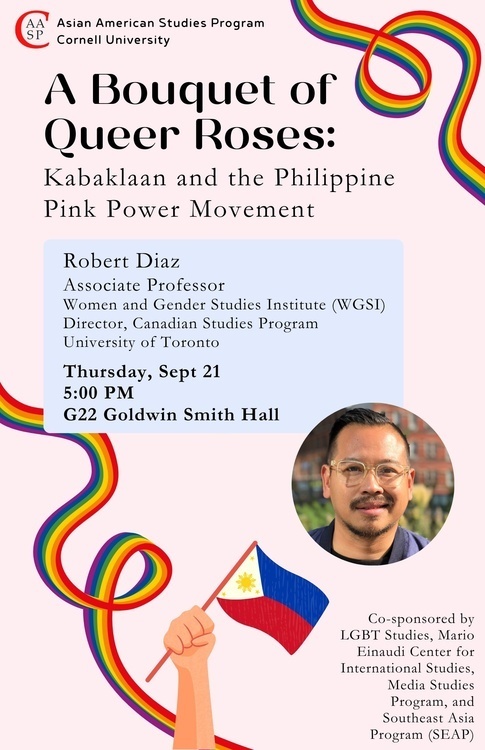
- Goldwin Smith Hall, G22
This talk emphasizes the significance of kabaklaan, or irreverent queer performances often dismissed as lower class, to the Philippine Pink Power Movement (PPM). The PPM was comprised of nationwide rallies, viral new media, and other forms of solidarity building that sought to elect former Vice-President Leni Robredo to the Philippine presidency. Crucial to PPM’s longevity were expressions of kabaklaan, including drag shows, campy videos, and beauty pageant satires. These wayward performances inspired diverse Filipinos to participate in national politics and to memorialize martial law. They also cultivated “queer echo chambers,” or systems of informational exchange that foregrounded sexual minority histories, cultures, and knowledges. PPM’s kabaklaan served as a fitting response to the scenes of normative domesticity that Ferdinand Marcos Jr. celebrated. They also critiqued the forms of toxic masculinity that Rodrigo Duterte's administration espoused. At its core, this talk offers a reparative reading of the 2022 presidential elections. It argues that despite Robredo’s loss, much can be learned from "Pink revolutions" that center queer pleasure, joy, and hope. Such revolutions can continue to fuel demands for social change and continue to replenish dreams of better worlds.
Dr. Robert Diaz is Associate Professor in the Women and Gender Studies Institute (WGSI) and Director of the Canadian Studies Program at University of Toronto. His research examines how queer cultures in the United States, Canada, Asia, and the Philippines negotiate and resist marginalization. He is co-editor of Diasporic Intimacies: Queer Filipinos and Canadian Imaginaries (Northwestern University Press, 2017) and Beauty and Brutality: Manila and Its Global Discontents (Temple University Press, 2023). His writing has also appeared in Signs, GLQ, TSQ, Journal of Asian American Studies, Asian Diasporic Visual Culture and the Americas, and Canadian Literature. Dr. Diaz has also collaborated with diverse artists, activists, and community organizations to address the systemic barriers to access and equity.
